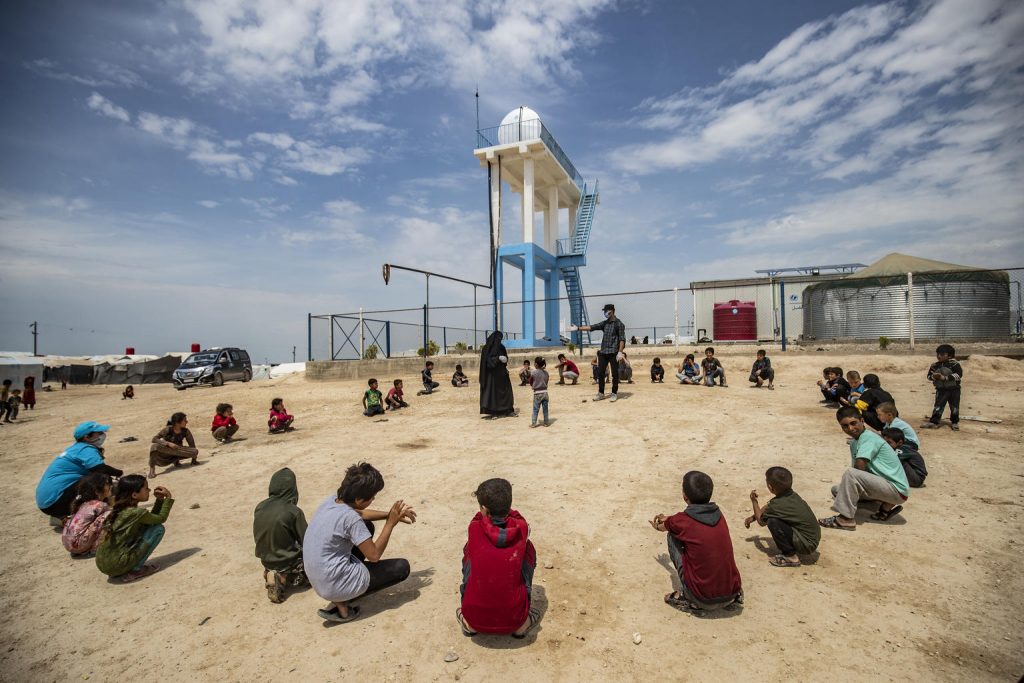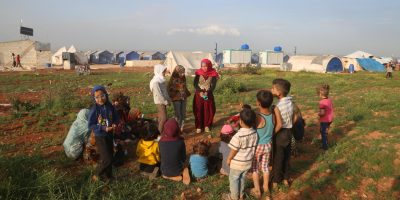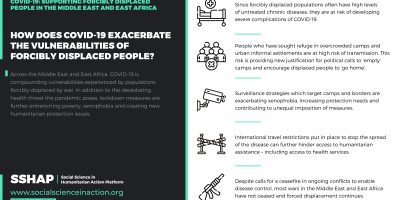Across the Middle East and East Africa, COVID-19 is compounding vulnerabilities already experienced by populations forcibly displaced by war (refugees, asylum-seekers, internally-displaced and stateless persons). In addition to the devastating health threat the pandemic poses, lockdown measures imposed by governments to reduce transmission are having outsized effects on forcibly displaced populations, further entrenching poverty, xenophobia and creating new humanitarian protection issues.
This summary paper puts forward considerations of the ways in which humanitarian actors, civil society organisations and government departments with specific responsibilities towards displaced people can contribute to lessening vulnerabilities in this pandemic.
For further considerations and details on local COVID-19 responses by forcibly displaced populations across the Middle East & East Africa, see our full Background Paper: COVID-19 and forced displacement in the Middle East & East Africa.





